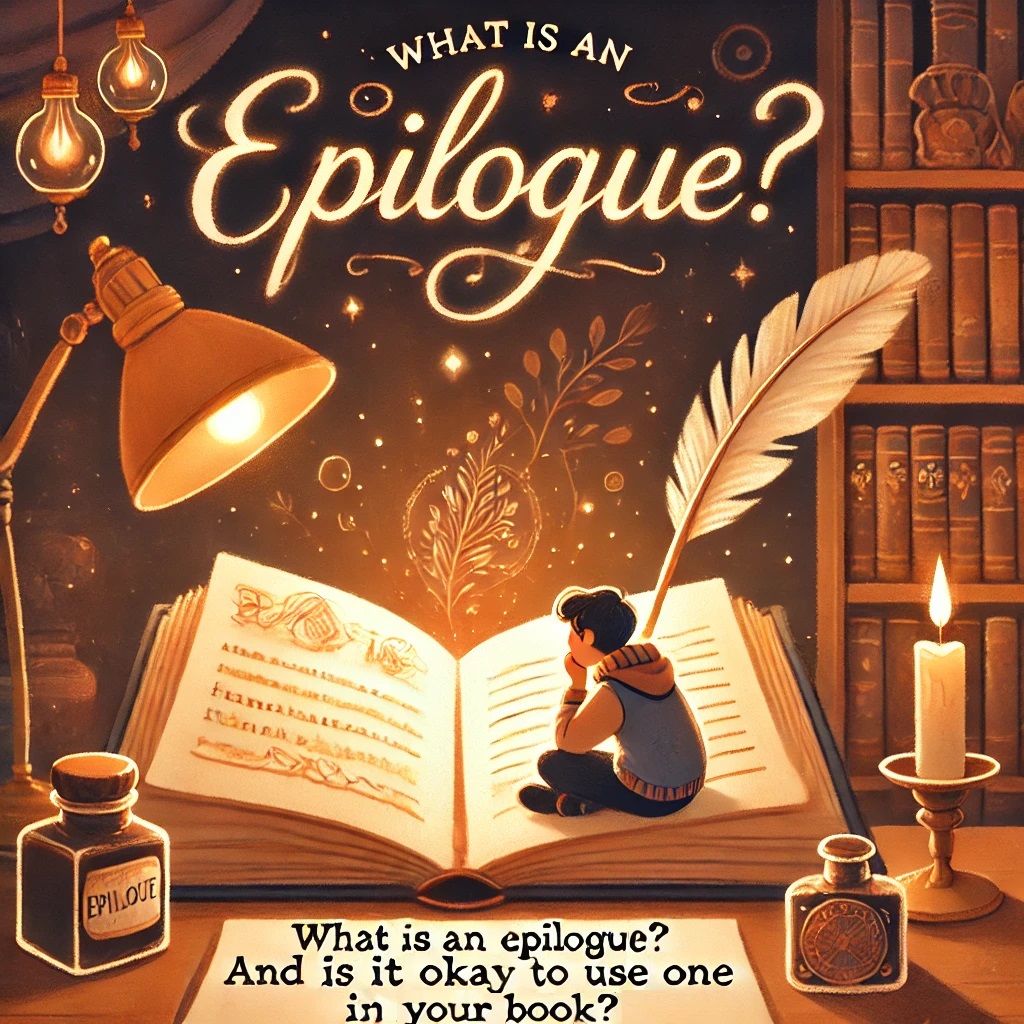Every great story deserves a strong finish—but what happens after “The End”? Enter the epilogue—a literary tool that offers readers closure, clarity, or a glimpse of what comes next. Whether you’re writing a sweeping saga, a fast-paced thriller, or a heartfelt romance, an epilogue can add complexity and resonance to your narrative arc. But is it right for your book?
At Book Planets, where we help authors bring their visions to life through custom book writing, we often get asked: Should I include an epilogue in my manuscript? This article explores what an epilogue is, its purpose, and when to use it effectively. If you’re on the fence, read on before you write that final page.
What Is an Epilogue?
An epilogue is a concluding section that comes after the main story has ended. Derived from the Greek word epilogos, meaning “concluding word,” it serves as a literary bridge between the story and its after-effects.
Think of it as the bonus scene—a place to tie up loose ends, fast-forward in time, or even lay the groundwork for a sequel. Unlike the final chapter, the epilogue is distinct in tone, perspective, or timeline. It’s a literary tool, not a requirement—but when used right, it’s unforgettable.
What Makes an Epilogue Different From a Final Chapter or Afterword?
A final chapter still operates within the timeline of your main narrative. It brings the plot to a close.
An afterword is non-fictional and often written by the author to reflect on the writing process or share real-life insights.
An epilogue, on the other hand, continues the fictional world. It’s often set weeks, months, or years later and gives the reader a satisfying look at how the characters’ lives evolved post-conflict.
Do You Really Need an Epilogue? Ask These Questions First
Before adding an epilogue to your manuscript, consider the following:
- Does your story feel unfinished without it?
- Will the epilogue enhance the emotional payoff?
- Is there significant time passing between the ending and the wrap-up?
- Are you hinting at a sequel or launching a series?
If you answered yes to any of these, you may benefit from incorporating an epilogue. Our creative writing services can help you determine where—and how—to integrate one meaningfully.
Benefits of Including an Epilogue
1. Closure for the Reader
One of the primary functions of an epilogue is emotional closure. If your characters have faced deep trauma or transformation, readers often crave confirmation that everything turned out okay—or at least that it mattered.
2. Worldbuilding Continuity
In fantasy or science fiction, the epilogue can cement lore, explore consequences, or shift perspectives. This is particularly useful when planning a sequel.
3. Future Hooks
Epilogues can tease the next book in a series, providing subtle hints or new conflicts. For authors planning a launch, this fits well with a strategic book publishing strategy.
4. Character Development
Sometimes, your protagonist’s journey doesn’t end with the last conflict. Showing how they’ve grown post-story can be powerful.
Types of Epilogues (With Examples)
1. The Flash-Forward
Think of the “19 years later” epilogue in Harry Potter and the Deathly Hallows. This technique projects readers into the future, revealing how the characters have evolved.
2. The Unreliable Narrator
Sometimes, the epilogue subverts expectations—offering a twist or new interpretation of past events. It’s clever but must be used sparingly and with purpose.
3. A Shift in POV
Switching perspectives in the epilogue—perhaps to a minor character or even the antagonist—can offer fresh insight. If you’re unsure how this shift will resonate, consult fiction editing services to maintain tonal consistency.
When You Might Want to Skip the Epilogue
- If your story already ends with closure: No need to overwrite a perfect ending.
- If it feels like filler: Don’t dilute your impact with unnecessary exposition.
- If it raises more questions than answers: The epilogue should complement—not confuse—your plot resolution.
Our professional ghostwriters often advise against epilogues that simply rehash the final chapter or introduce brand-new conflicts. Keep it focused and intentional.
How to Write a Strong Epilogue: Expert Tips
1. Keep It Concise
Aim for impact over length. A good epilogue is emotionally satisfying without being indulgent.
2. Stay True to Tone
Maintain consistency with the rest of the book. If your novel is dramatic and somber, a comedic epilogue may jar your readers.
3. Avoid Info Dumps
Don’t use the epilogue to explain everything that happened off-screen. Show, don’t tell—just as you would in your main chapters.
4. Make It Earned
The epilogue should feel like a natural progression, not a patch job. Our book content editing team ensures your narrative flows seamlessly from climax to conclusion.
Common Mistakes to Avoid
- Spoiling your sequel: Tease, don’t tell.
- Overcomplicating the story: Don’t introduce major plot elements that require explanation.
- Tone shifts: A romantic epilogue after a thriller ending? Be careful with emotional whiplash.
Before finalizing your epilogue, it’s wise to invest in manuscript proofreading or literary editing services to ensure everything aligns.
How Book Planets Helps Authors Craft Perfect Epilogues
At Book Planets, we guide authors through every phase of storytelling—from book synopsis writing to book blurb writing, editing, and publishing. Whether you need help structuring your epilogue, editing for clarity, or weaving it into a larger series strategy, we’ve got your back.
Here’s how we help:
- Custom book writing packages tailored to your genre and vision
- One-on-one collaboration with professional ghostwriters
- Expert editors for developmental, line, and fiction editing services
- Strategic support for publishing, formatting, and promotion
With us, you don’t just write a book—you build a legacy.
Famous Books With Memorable Epilogues
- Harry Potter and the Deathly Hallows by J.K. Rowling – A classic “life after conflict” ending.
- The Hunger Games by Suzanne Collins – Offers emotional healing and character growth.
- Gone Girl by Gillian Flynn – A chilling look into an ongoing toxic relationship.
- The Handmaid’s Tale by Margaret Atwood – The epilogue reframes the entire narrative through an academic lens.
If you’re wondering how to make your story’s ending land with power, these examples offer diverse approaches.
Final Thoughts: Is an Epilogue Right for YOUR Book?
Like every narrative tool, the epilogue serves a purpose—but it must be used with intent. If your story demands reflection, resolution, or future intrigue, an epilogue can be a powerful way to leave a lasting impression.
At Book Planets, we empower authors to tell complete, compelling stories from beginning to end—and sometimes, a little beyond. Whether you’re just brainstorming or on the final draft, we’re here to help you polish your prose and publish with confidence.

